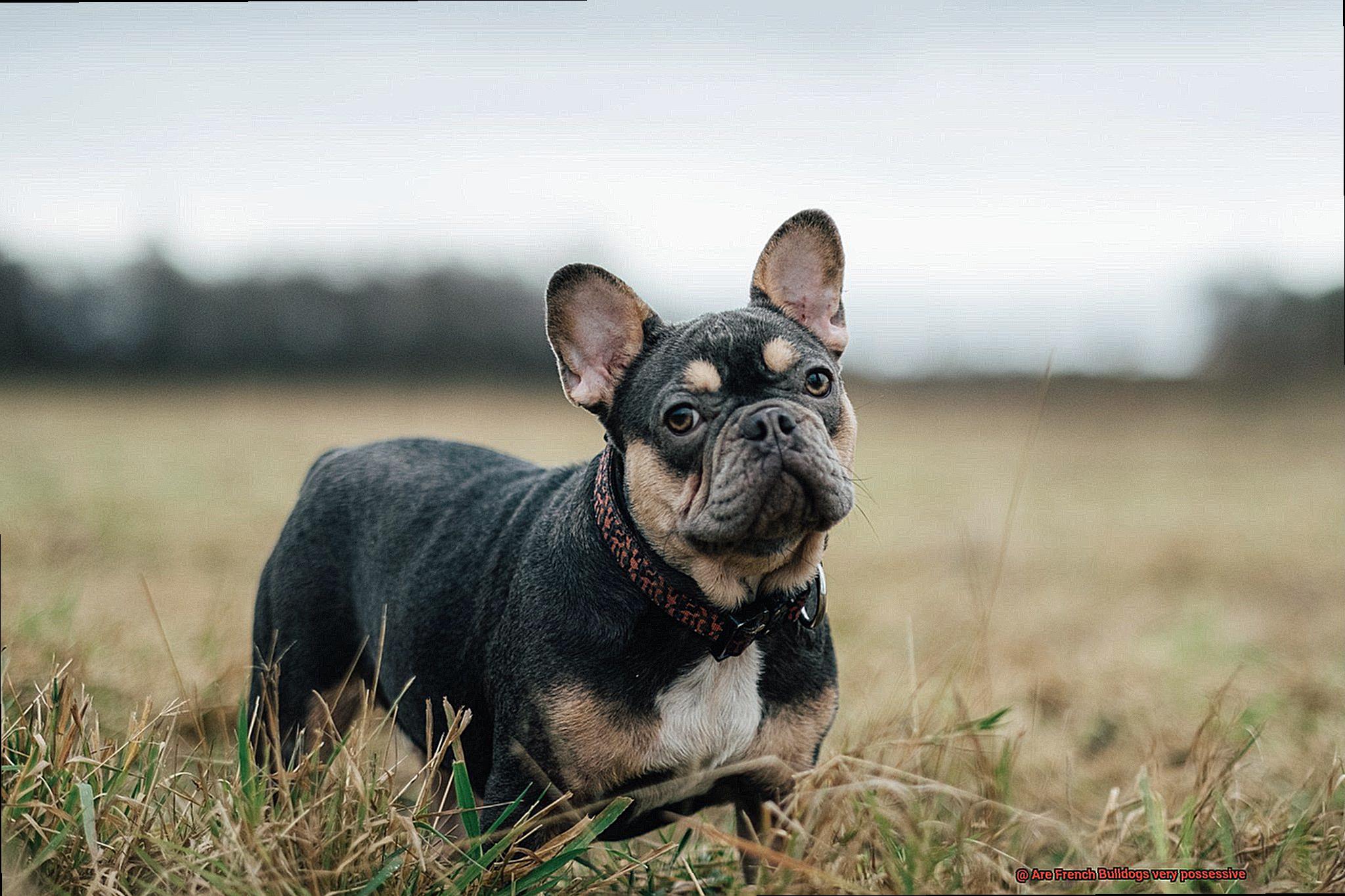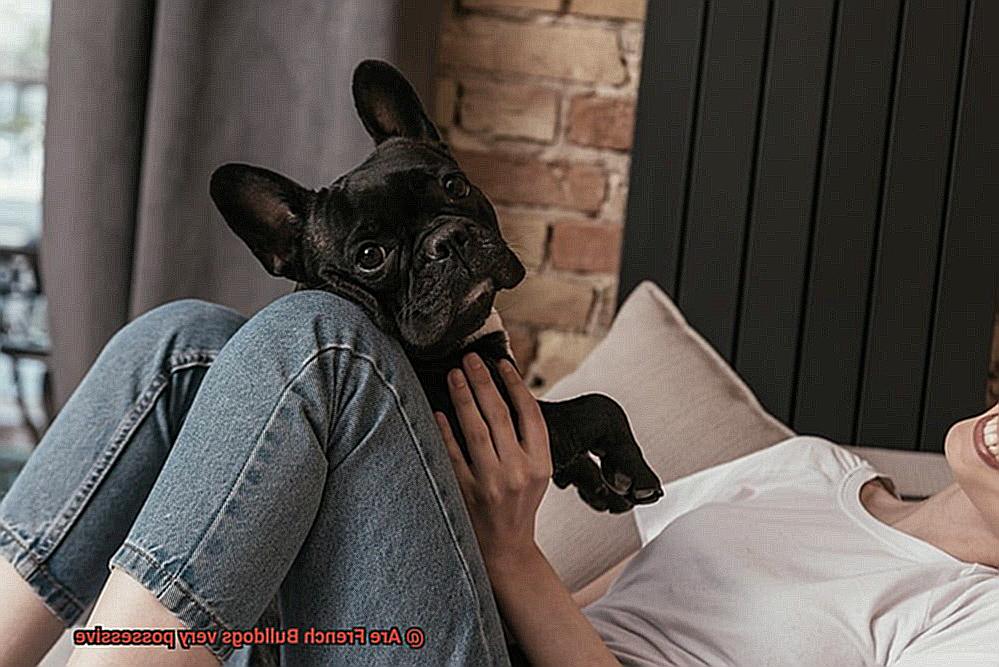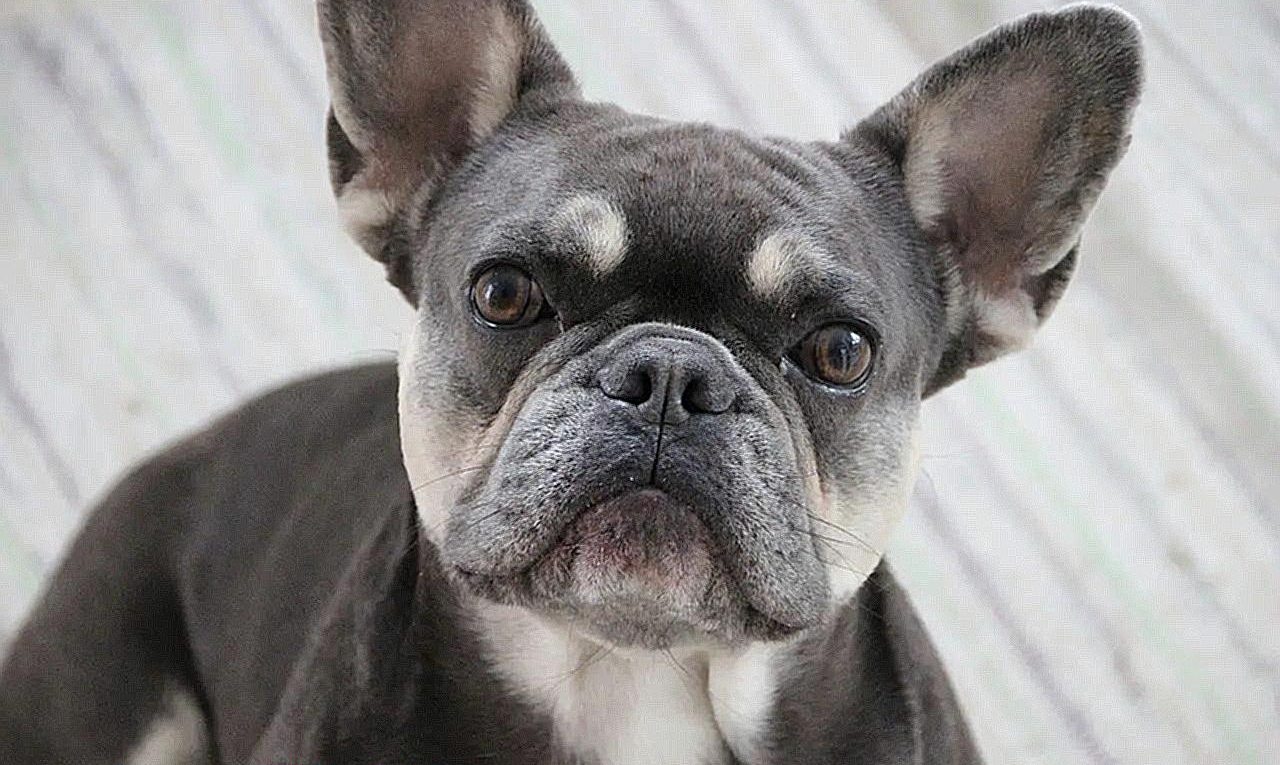Are French Bulldogs very possessive?
Step right into the enchanting realm of French Bulldogs, where cuteness reigns supreme and devotion runs deep. Are you considering welcoming one of these adorable, squish-faced furballs into your life? Or perhaps you’re already lucky enough to call a French Bulldog your own? Either way, it’s time to unravel a topic that often raises eyebrows and ignites curiosity – their possessive nature.
French Bulldogs have always been renowned for their captivating personalities, irresistible looks, and unwavering protective instincts. Yet, it’s their reputation for possessiveness that steals the spotlight, leaving potential owners both intrigued and cautious about what this trait entails. Fear not. In this blog post, we’ll navigate through the depths of French Bulldogs’ possessiveness, separating fact from fiction while providing valuable insights into their behavior.
So whether you’re a die-hard Frenchie fanatic or just starting to acquaint yourself with this delightful breed, get ready to embark on an enthralling journey into the world of French Bulldog possessiveness.
We’ll dive headfirst into their territorial quirks, explore their attachment tendencies, and debunk a few misconceptions along the way. Brace yourself for laughter-inducing anecdotes, heart-melting moments, and a profound understanding of our four-legged companions. Together, let’s unlock the mystery that is French Bulldog possessiveness.
The Causes of Possessive Behavior in French Bulldogs
Contents
- 1 The Causes of Possessive Behavior in French Bulldogs
- 2 How to Identify Possessiveness in French Bulldogs
- 3 Understanding the Nature of French Bulldogs and Their Possessiveness
- 4 Training Techniques for Curbing Possessive Behavior in French Bulldogs
- 5 Socialization Strategies for Reducing Possessiveness in French Bulldogs
- 6 Common Signs of Possessive Behavior in French Bulldogs
- 7 Tips for Dealing With a Possessive French Bulldog
- 8 Professional Help for Extremely Possessive French Bulldogs
- 9 Conclusion
French Bulldogs are known for their charming personalities and affectionate nature. However, some French Bulldogs may exhibit possessive behavior, which can be concerning for their owners. In this article, we will explore the causes of possessiveness in French Bulldogs and provide guidance on how to address this behavior.
Genetic Predisposition and Instincts:
Possessive behavior in French Bulldogs can be attributed to their genetic predisposition. As descendants of guardian dogs, they have a natural inclination to protect their resources, such as food, toys, and even their owners’ attention. This instinct is deeply ingrained in their DNA and can manifest as possessiveness.
Upbringing and Socialization:
Proper upbringing and socialization play crucial roles in preventing possessive behavior in French Bulldogs. Early exposure to various people, animals, and environments helps them develop confidence and learn appropriate behaviors.
If a French Bulldog has not been adequately socialized during their critical development period, they may become possessive as a way to guard what they perceive as their possessions.
Environmental Influences:
The environment in which a French Bulldog is raised can also contribute to possessive behavior. Traumatic experiences or exposure to stressful situations can trigger possessiveness as a coping mechanism.
It is essential to create a safe and positive environment for your French Bulldog to help alleviate any anxieties that may lead to possessive behavior.
Unintentional Reinforcement:
Sometimes, unwittingly, owners reinforce possessive behavior by giving in to their dog’s demands or failing to set clear boundaries. This inadvertently teaches the dog that possessiveness is an effective way to obtain what they desire.
Consistency and clear communication from the owner are essential in curbing possessive tendencies.
Health Issues:
Underlying health conditions, such as pain or hormonal imbalances, can contribute to possessiveness in French Bulldogs. It is crucial to rule out any medical issues that may be causing or exacerbating the behavior. Consulting with a veterinarian can help identify and address these health concerns.
Managing and Addressing Possessive Behavior:
Fortunately, possessive behavior in French Bulldogs can be managed and modified with proper training and behavior modification techniques. Seeking professional help from a dog trainer or behaviorist who specializes in possessive behavior can provide invaluable guidance and support.
How to Identify Possessiveness in French Bulldogs
French Bulldogs are known for their affectionate and loyal nature. However, some individuals may exhibit possessive behavior, which can be challenging for both the dog and its owner. In this blog post, we will explore how to identify possessiveness in French Bulldogs and provide tips for addressing this behavior.

Recognizing Signs of Possessiveness:
To identify possessiveness in French Bulldogs, it is important to observe their body language and behavior. Signs of possessiveness may include growling, snapping, or biting when someone approaches their possessions, territorial behavior over certain areas of the house, excessive protectiveness towards their owners, tension in their posture, raised hackles, a fixed stare, vocal cues like growling or barking, and attempts to control interactions with others.
Understanding the Causes:
Possessiveness in French Bulldogs can stem from various factors such as genetics, early experiences, or training methods. Some dogs may have a stronger predisposition towards possessive behavior due to their breeding or individual personality. Lack of proper socialization during their early stages of development can also contribute to possessive tendencies.
Positive Reinforcement Training:
Positive reinforcement training is a crucial tool in addressing possessiveness in French Bulldogs. Rewarding the dog for calm and non-possessive behavior helps them understand that sharing and being non-territorial is desirable.
For example, when they willingly give up a toy or allow someone to approach their food without exhibiting possessive behavior, give them praise and treats as a reward.
Socialization:
Proper socialization from an early age is essential to help French Bulldogs develop confidence and reduce possessive tendencies. Gradually exposing them to different people, animals, and environments can help them become more comfortable in various situations. Encourage positive interactions with others and provide plenty of opportunities for playdates and outings.
Seeking Professional Help:
If possessiveness in a French Bulldog becomes severe or unmanageable, it is important to seek professional help from a qualified dog trainer or behaviorist. They can provide guidance and develop a tailored plan to address possessive behavior effectively.
Understanding the Nature of French Bulldogs and Their Possessiveness
Signs of Possessiveness in French Bulldogs:
- Guarding behavior: French Bulldogs may show possessiveness over their food, toys, or personal space by growling, snapping, or even biting when someone tries to approach or take away these items.
- Jealousy: These dogs can become possessive of their owners’ attention and affection, showing signs of jealousy when other pets or people get too close.
- Resource guarding: French Bulldogs may exhibit possessiveness over valuable resources such as food, water bowls, beds, or even their owners’ personal belongings.
Tips for Managing Possessiveness in French Bulldogs:
- Early socialization: Start socializing your French Bulldog from a young age, exposing them to different people, animals, and environments. This helps them learn appropriate behaviors and reduces the likelihood of possessiveness.
- Obedience training: Teach your French Bulldog basic obedience commands such as “sit,” “stay,” and “leave it.” This reinforces the idea of sharing and relinquishing control, helping to manage possessive behavior.
- Establish clear boundaries: Set consistent rules and boundaries for your French Bulldog. Teach them to respect personal space and not display possessiveness over food, toys, or other resources.
- Positive reinforcement: Use positive reinforcement techniques such as treats, praise, and rewards to reinforce good behavior. This encourages your French Bulldog to associate positive outcomes with non-possessive behavior.
- Avoid punishment-based training methods: Punishment can increase anxiety in French Bulldogs and worsen possessive tendencies. Focus on positive reinforcement techniques instead.
- Provide mental and physical stimulation: Engage your French Bulldog in regular exercise, playtime, and puzzle toys to keep them mentally and physically stimulated. This helps reduce anxiety levels and prevents them from fixating on possessive behaviors.
- Seek professional help if needed: If your French Bulldog’s possessive behavior persists or escalates, consider consulting a professional dog trainer or behaviorist for guidance and support.
Training Techniques for Curbing Possessive Behavior in French Bulldogs
Establishing Yourself as the Pack Leader
French Bulldogs have a strong pack mentality, so it is important to establish yourself as the pack leader. This means setting clear rules and boundaries and consistently enforcing them. To do this:
- Be consistent with your commands and expectations.
- Use confident body language and assertive tone of voice.
- Make sure your dog follows basic commands like sit, stay, and come.
Positive Reinforcement
Positive reinforcement is a powerful training technique that can be used to curb possessive behavior in French Bulldogs. By rewarding non-possessive behavior, you can encourage your dog to exhibit more desirable behaviors. Here’s how to use positive reinforcement effectively:
- Reward your dog with treats, praise, or playtime when they exhibit non-possessive behaviors like sharing toys or food.
- Use a marker word like “good” or “yes” to indicate when your dog has done something right.
- Consistency is key – reward your dog every time they display non-possessive behavior.
- Start with low-value items that your dog is possessive over, such as an old toy.
- Gradually introduce higher-value items, like a favorite toy or food.
- Reward your dog for exhibiting non-possessive behavior during these exercises.
- Start with a low-value item on the ground.
- Say “leave it” and reward your dog when they ignore the item.
- Gradually increase the value of the items and reinforce the command.
- Introduce your French Bulldog puppy to a variety of people, animals, and environments from an early age.
- Gradually expose them to different situations, rewarding calm and non-possessive behavior with treats, praise, and play.
- This helps them become comfortable and adaptable, reducing the likelihood of possessiveness later on.
- Organize controlled playdates or visits to dog parks to promote healthy socialization.
- Allow your French Bulldog to learn appropriate social cues and boundaries from other dogs.
- Supervise these interactions and intervene if possessive behavior arises, redirecting their attention to more positive behaviors.
- Practice exercises like trading toys or treats with your French Bulldog.
- This helps them understand that giving up an item does not mean losing it permanently.
- Reward them for willingly sharing resources and reinforce the concept of cooperation.
- Incorporate structured training sessions into your French Bulldog’s routine.
- Focus on impulse control and obedience commands to teach them to listen and respond to your instructions.
- This helps reduce possessive tendencies by establishing you as the leader and promoting respect for boundaries.
- Utilize positive reinforcement techniques such as treats, praise, and play to reward non-possessive behavior consistently.
- Be patient and consistent in reinforcing desired behaviors to strengthen their understanding and response.
- If possessiveness persists or escalates, consider enrolling your French Bulldog in obedience classes or seeking professional training assistance.
- A professional trainer can provide tailored guidance on specific strategies to address possessiveness and ensure a safe and healthy environment for everyone involved.
- Regularly expose your French Bulldog to new experiences, people, and animals throughout their life.
- Engage in activities like agility or obedience trials to keep their socialization skills sharp and prevent possessiveness from resurfacing.
- Resource Guarding: One of the most common signs of possessiveness in French Bulldogs is resource guarding. This means your Frenchie becomes defensive and protective over their food, toys, or any other item they consider valuable. Watch out for growling, snapping, or even biting when someone approaches their possessions.
- Territorial Behavior: French Bulldogs are known to be loyal and protective, but when their territorial instincts go into overdrive, possessive behavior may arise. Your Frenchie may become overly protective of their home or personal space, displaying aggression towards strangers or even familiar individuals they perceive as a threat.
- Clingy Behavior: Does your Frenchie follow you around like a shadow? While it’s cute to have a loyal companion, clingy behavior can also be a sign of possessiveness. If your Frenchie constantly demands attention and becomes anxious or distressed when separated from you, it might be time to address this possessive trait.
- Jealousy: French Bulldogs can get jealous too. If your Frenchie becomes visibly upset or acts out when they see you giving attention to another person or pet, it’s a clear sign of possessiveness. Barking, growling, or displaying aggressive behavior towards the perceived threat are common reactions.
- Guarding Family Members: Your Frenchie loves their family fiercely, but possessive behavior can sometimes make them overprotective. If your Frenchie shows aggression towards anyone they perceive as a threat to their loved ones, it’s time to address this behavior.
- Excessive Barking: French Bulldogs are known for their vocal nature, but excessive barking can also be a sign of possessiveness. If your Frenchie barks persistently at strangers, other animals, or even objects in an attempt to assert control and protect what they consider theirs, it’s time for some training.

Gradual Desensitization
Gradual desensitization can help your French Bulldog overcome possessiveness by gradually exposing them to situations that trigger possessive behavior. Here’s how to implement this technique:
Teaching the “Leave It” Command
The “leave it” command is useful for redirecting your French Bulldog’s attention away from possessions they are guarding. Here’s how to train this command:
Seeking Professional Help
If your French Bulldog’s possessive behavior persists despite your efforts, it may be beneficial to seek professional help. A professional dog trainer or behaviorist can provide guidance tailored to your dog’s specific needs and help you address the behavior effectively.
Socialization Strategies for Reducing Possessiveness in French Bulldogs
French Bulldogs are known for their loyalty and affectionate nature. However, they can sometimes develop possessive behaviors, which can be a cause for concern. In this article, we will explore effective socialization strategies that can help reduce possessiveness in French Bulldogs, ensuring a happier and more harmonious relationship with your furry friend.
Start Early: Puppyhood is Key
Encourage Positive Interactions with Other Dogs
Teach Resource Sharing
Structured Training Sessions
Positive Reinforcement is Key
Seek Professional Assistance if Needed
Maintain Socialization Throughout Their Life
Reducing possessiveness in French Bulldogs is possible through effective socialization strategies, starting from puppyhood and continuing throughout their lives.
By implementing these techniques, you can foster a well-rounded and confident French Bulldog, ensuring a harmonious relationship built on trust, respect, and love. Remember to be patient, consistent, and always prioritize positive reinforcement to bring out the best in your furry friend.
Common Signs of Possessive Behavior in French Bulldogs
If you’re a proud owner of a French Bulldog, you know they have a personality as big as their adorable bat-like ears. But sometimes, that personality can take a possessive turn. So, how do you know if your Frenchie is just being protective or showing signs of possessive behavior? Let’s dig in and find out.
Tips for Dealing With a Possessive French Bulldog
French Bulldogs are adorable and lovable pets, but some of them can develop possessive behavior. If your French Bulldog guards toys, food, or even you, it’s important to address this behavior early on. With patience, consistency, and proper training techniques, you can help your furry friend overcome possessiveness and create a harmonious environment for both of you.
Establish Clear Boundaries:
To deal with possessiveness, set clear boundaries from the beginning. Teach your French Bulldog what is acceptable behavior by providing them with consistent guidance. For example, if your dog becomes possessive over toys or food, teach them to wait patiently and only engage with these items when given permission.
Socialize Your French Bulldog:
Socialization is crucial for any dog breed, including French Bulldogs. By exposing your dog to different people, animals, and environments, you can help them develop better social skills and reduce possessive tendencies. Take them on regular outings, introduce them to other dogs, and enroll them in training classes to ensure they become comfortable around others.
Use Positive Reinforcement:
Reward-based training methods can be highly effective in dealing with possessiveness in French Bulldogs. Instead of punishing or scolding your dog for possessive behavior, focus on rewarding them for appropriate behavior. Offer praise or treats when they display calm and non-possessive behavior around their toys or food.
Provide Mental Stimulation:
Boredom can trigger possessive behavior in dogs. To prevent this, provide your French Bulldog with mental stimulation through interactive toys, puzzle games, and regular training sessions. Keeping their minds occupied helps redirect their attention away from possessive tendencies.
Seek Professional Help:
If your French Bulldog’s possessive behavior becomes excessive or difficult to manage on your own, consider seeking professional help from a dog trainer or behaviorist. They can assess the situation and provide customized strategies to address the issue effectively.
Maintain Consistency:
Consistency is key when dealing with possessiveness in French Bulldogs. Ensure that all family members and visitors follow the same rules and boundaries, so your dog doesn’t get confused. Consistent training, routines, and expectations will help your French Bulldog understand what is expected of them and reduce possessive tendencies over time.
Professional Help for Extremely Possessive French Bulldogs
So, you’ve come face-to-face with your possessive French Bulldog. They guard their toys, food, and even you. But don’t fret; there’s a solution. By seeking professional help, you can address and manage your furry friend’s possessive behavior effectively. In this article, we’ll explore why it’s crucial to consult experts in dealing with extremely possessive French Bulldogs.
Expertise Matters:
Professional dog trainers and animal behaviorists who specialize in working with French Bulldogs and possessive behaviors have the knowledge and experience to assess your unique situation.
Thorough Evaluation:
Professionals conduct a comprehensive evaluation to identify triggers, patterns, and underlying causes of possessiveness. This assessment helps determine the most appropriate approach for addressing the issue.
Desensitization and Counterconditioning:
One common technique used by professionals is desensitization and counterconditioning. This method gradually exposes your Frenchie to triggers while rewarding calm behavior. Over time, they learn to associate these triggers with positive experiences instead of possessiveness.
Behavior Modification Exercises:
Implementing behavior modification exercises, such as impulse control and obedience training, helps establish boundaries and reinforce your role as the pack leader. This reduces possessiveness in your French Bulldog.
Management Strategies:
Professionals may suggest management strategies to prevent or minimize possessive behaviors. These strategies include creating a structured environment, consistent routines, providing outlets for physical and mental stimulation, and ensuring your Frenchie feels secure within the family.
Medication or Supplements:
In some cases, professionals may recommend medication or supplements to complement behavior modification efforts, reducing anxiety or aggression associated with possessiveness.
Active Participation:
Owners must actively participate in the training process and follow the professional’s guidance consistently. Consistency, patience, and positive reinforcement are key to addressing possessive behaviors in French Bulldogs.
Early Intervention:
Seek professional help early on. The longer possessive behavior goes unaddressed, the more challenging it becomes to modify successfully.
TFKZq8oPeC4″ >
Conclusion
French Bulldogs are known for their charming and affectionate nature, but when it comes to possessiveness, they can exhibit some strong tendencies. These adorable little pups have a knack for becoming deeply attached to their owners and can often display possessive behaviors towards them.
One of the key reasons why French Bulldogs may be considered possessive is their intense loyalty. They form strong bonds with their human companions and can become quite protective of them. This loyalty can manifest in various ways, such as guarding their owners or belongings, and even showing signs of jealousy when attention is diverted elsewhere.
When it comes to sharing, French Bulldogs may not always be the most generous. They have a tendency to guard their toys, food bowls, and even favorite spots on the couch. This possessiveness stems from their instinctual nature as descendants of ancient guardian breeds.
Another factor that contributes to French Bulldogs’ possessiveness is their inherent need for attention and affection. These dogs thrive on human interaction and crave constant companionship. As a result, they may become possessive over their owners’ time and affection, wanting to be the sole focus of attention.
It’s important to note that while French Bulldogs can exhibit possessive behaviors, proper training and socialization can help mitigate these tendencies. Early exposure to different people, animals, and environments can teach them how to share and interact appropriately.
In conclusion, French Bulldogs do have a propensity for possessiveness due to their loyal nature and need for attention. However, with consistent training and socialization, these tendencies can be managed effectively.




